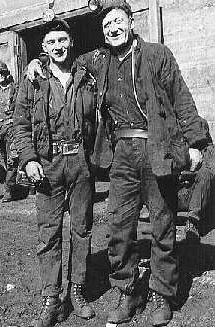
|
History of Elkford Prior to the settlement of the Elk Valley, the area was inhabited by migrant Indians who visited the hunter’s Eden each year to harvest fish and game to carry them through the winter months. Migrants of the Tobacco Plains Band of the Ktunaxa (Kootenay) Indians were likely the first to enter the Elk Valley. Some of their artifacts and drawings can still be found in the area. Thomas Blackiston of the 1800’s Pallister expedition saw, and is credited with naming the Crowsnest Pass. The first white man known to travel though the pass was Michael Phillips in 1873. He returned the following year in search of gold and was disappointed to find only coal. In 1884, Dr. George Mercer Dawson of the Geological Survey of Canada came to the valley to explore the coal deposits and found that they were extensive. A syndicate was formed to develop the mines and, through the efforts of members like William Fernie and James Baker, the Crowsnest Pass Coal Co. was formed. The Canadian Pacific Railway then began construction of the BC Southern Railway. It wasn’t until the 1900’s that the availability of rail transportation into the Crowsnest Pass and the demand for coal to fuel the trains created a sudden market. Although the reserves in the Upper Elk Valley were vast, it was felt it was uneconomical to construct rail lines to the Fording River Valley. As a result, mining in what is now known as Elkford did not begin until 1968. Now, over 25 years later, Elkford boasts two highly productive coal mines operated by Fording Coal Limited which provide the main source of employment in Elkford. Many ranchers, trappers and guides found the valley to be a paradise. Wildlife in the valley was a delight to most sportsmen. In the early 1900’s the valley attracted hunters and fishermen from all parts of Canada and the United States, who all came. to take home rich rewards from the huge fish and game reserves. Many colorful old timers resided in and around Elkford. One such character was "Wildcat Charlie" who has affectionately become a symbol of Elkford’s roots. Charlie Weigert was said to be a solitary, but cheerful German rancher who owned the lands of the Sulphur Springs. |
